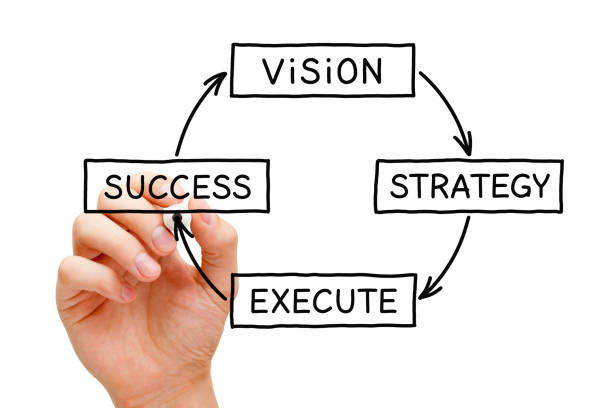Tracking progress effectively is essential for anyone looking to achieve personal or professional goals. Whether you are striving to advance in your career, improve your health, or achieve academic success, understanding how to measure and monitor your progress can significantly increase your chances of success. This guide will explore various strategies, tools, and tips for effective progress tracking.
Why Tracking Progress is Important

Tracking progress is a vital aspect of goal-setting and achievement. Here are some explanations for its significance:
Motivation and Accountability
When you track your progress, you create a tangible record of your efforts and achievements. This can be incredibly motivating, as it allows you to see how far you’ve come and reinforces your commitment to your goals. Additionally, progress tracking helps you stay accountable to yourself and others who may be supporting you in your journey.
Identifying Obstacles
By regularly monitoring your progress, you can identify obstacles and challenges early on. This allows you to address these issues proactively, adjusting your strategies as needed to stay on track.
Measuring Success
Tracking progress provides a clear and objective measure of your success. It helps you determine whether you are meeting your milestones and achieving your goals within the desired timeframe.
Making Informed Decisions
With accurate progress tracking, you can make informed decisions about the next steps in your journey. It allows you to assess what is working, what isn’t, and what changes you need to make to improve your outcomes.
Strategies for Effective Progress Tracking

There are various strategies you can use to track your progress effectively. Here are a few of the best techniques:
Set Clear, Specific Goals
The first step in tracking progress effectively is to set clear, specific goals. These goals should be SMART: Specific, Measurable, Achievable, Relevant, and Time-bound. By having well-defined goals, you can create a roadmap for success and determine the metrics you will use to measure your progress.
Break Down Goals into Smaller Milestones
Breaking down your larger goals into smaller, manageable milestones can make the process of tracking progress more manageable. These milestones serve as checkpoints along the way, allowing you to celebrate small victories and stay motivated.
Use a Tracking Tool or System
There are many tools and systems available to help you track your progress. These can range from simple paper planners to sophisticated digital apps. Some popular options include:
- Journals and Planners: Writing down your goals and progress in a journal or planner can be an effective way to stay organized and focused.
- Digital Apps: Apps like Trello, Asana, and Habitica provide digital platforms for tracking tasks, goals, and habits.
- Spreadsheets: Creating a spreadsheet to track your progress can be a simple and customizable solution.
Establish a Routine
Maintaining consistency is essential for monitoring advancement.. Establishing a routine for monitoring and recording your progress can help you stay on track. Whether it’s a daily, weekly, or monthly check-in, having a regular schedule for progress tracking ensures that it becomes a habit.
Review and Reflect
Regularly reviewing and reflecting on your progress is crucial. Take time to assess what you have achieved, what challenges you have faced, and what adjustments you need to make. Reflection helps you learn from your experiences and continuously improve your strategies.
Tools for Tracking Progress

There are numerous tools available to help you track your progress effectively.
Trello
Trello is a versatile project management tool that allows you to create boards, lists, and cards to organize your tasks and goals. You can use Trello to break down your goals into smaller tasks, set deadlines, and track your progress visually.
Asana
Asana is another powerful project management tool that helps you track tasks and projects. With features like task assignments, due dates, and progress tracking, Asana is ideal for both personal and professional goal tracking.
Habitica
Habitica is a unique app that turns your goal tracking into a game. By completing tasks and goals, you earn rewards and level up your character, making progress tracking fun and engaging.
Google Sheets
Google Sheets is a customizable and accessible option for tracking progress. You can create a spreadsheet to list your goals, track milestones, and monitor your progress over time.
Bullet Journaling
Bullet journaling is a popular analog method for tracking goals and progress. By using a simple notebook and a system of symbols and logs, you can create a personalized and flexible progress tracking system.
Tips for Successful Progress Tracking

To ensure that you track your progress effectively, consider these additional tips:
Be Honest and Realistic
When tracking your progress, it is essential to be honest and realistic about your achievements and setbacks. Overestimating your progress can lead to disappointment, while underestimating can hinder your motivation.
Celebrate Small Wins
Celebrating small wins along the way can boost your motivation and keep you focused on your goals. Acknowledging your achievements, no matter how minor, reinforces your commitment and encourages you to keep going.
Stay Flexible
Life is unpredictable, and sometimes your progress may not go as planned. Staying flexible and being willing to adjust your goals and strategies as needed is crucial for long-term success.
Seek Support
Having a support system can make a significant difference in your progress tracking journey. Whether it’s friends, family, or a mentor, having people who encourage and hold you accountable can enhance your motivation and perseverance.
Conclusion
Tracking progress effectively is a powerful tool for achieving your goals. By setting clear goals, breaking them down into manageable milestones, using the right tools, and maintaining a consistent routine, you can stay motivated, identify obstacles, and make informed decisions. Remember to be honest, celebrate small wins, stay flexible, and seek support along the way. With these strategies and tips, you can master the art of progress tracking and turn your aspirations into achievements.
FAQ: Tracking Progress Effectively
1. What are the benefits of tracking progress?
Tracking progress helps you stay motivated, identify obstacles, measure success, and make informed decisions. Additionally, it encourages accountability and aids with goal tracking.
2. Which resources can I utilise to monitor my development?
There are many tools available, including digital apps like Trello, Asana, and Habitica, as well as traditional methods like journals, planners, and spreadsheets. Select the tool based on your tastes and needs.
3. How often should I review my progress?
The frequency of review depends on your goals and preferences. Some people prefer daily check-ins, while others find weekly or monthly reviews more effective. The key is to establish a consistent routine that works for you.
4. What should I do if I encounter obstacles in my progress?
When you encounter obstacles, take time to identify the root cause and consider adjusting your strategies. Seek support from friends, family, or mentors, and stay flexible in your approach.
5. How can I stay motivated when tracking progress?
Celebrate small wins, set achievable milestones, and keep a positive mindset. Tracking progress visually, such as through charts or graphs, can also boost motivation by showing tangible evidence of your efforts.




